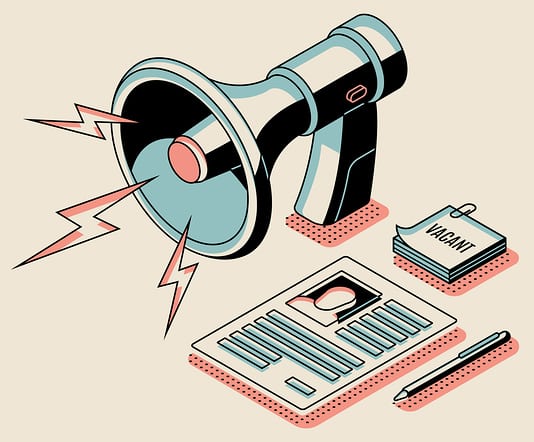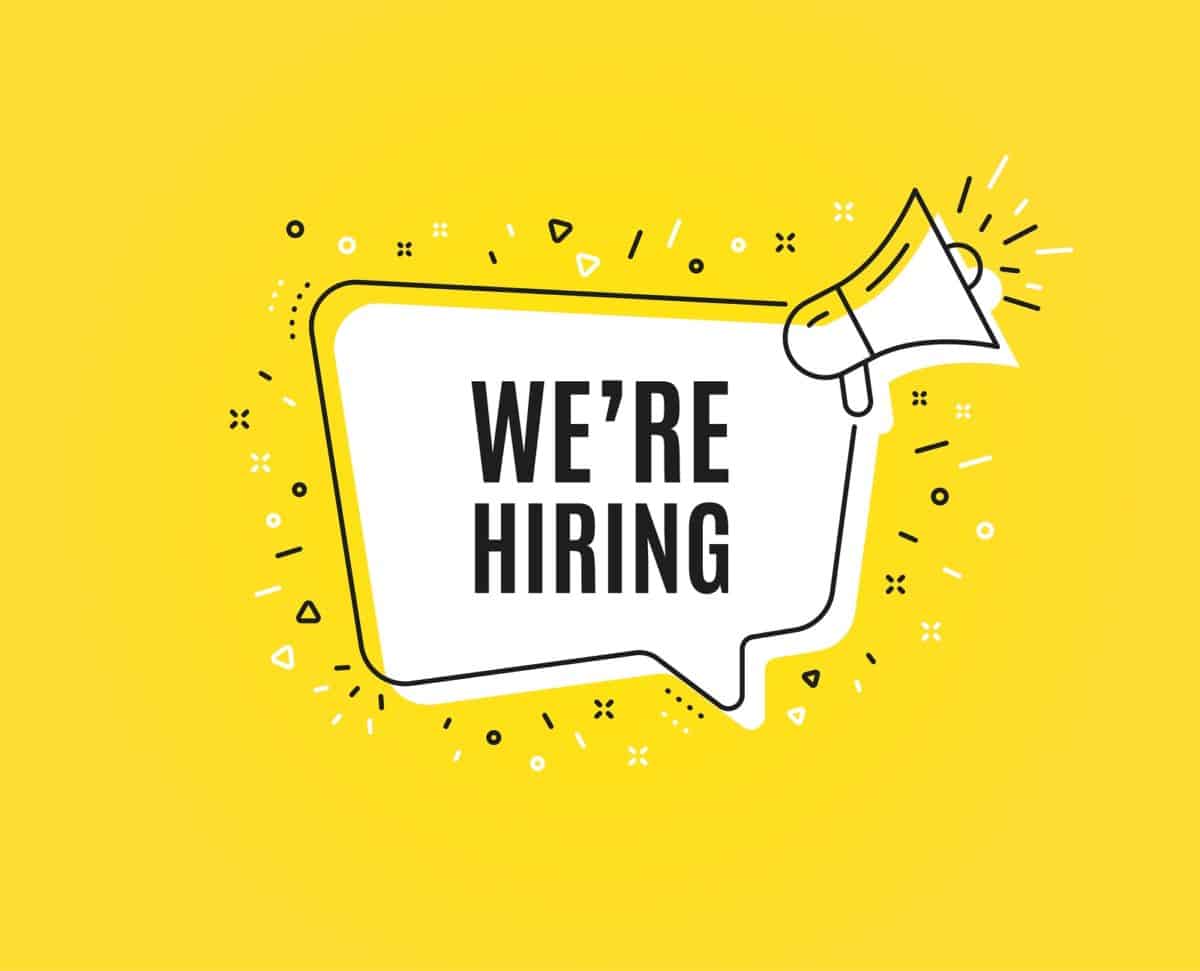[mks_dropcap style=”letter” size=”52″ bg_color=”#ffffff” txt_color=”#000000″]W[/mks_dropcap]hen I graduated from college I sucked at job search and spent six miserable months unemployed. From the lessons I learned then and over the last 15 years in business, I’ll teach you to be better than 99% of all other job seekers and land a job at a great company. Below, you’ll find those lessons distilled down into a step-by-step job search guide complete with e-mail templates and telephone scripts.
Job search was the last thing on my mind when I graduated in 1992 – I went to the beach instead (Ocracoke island, NC) and spent six months ignoring all the talk about an approaching recession. Not too smart, but still, the memories are priceless and I’d do it again.

I became depressed. This was the sort of depression where you stop talking to friends or family – I was in a black mood. My dream of becoming a real estate developer or builder was fading. Real estate was sinking all across the country, but that wasn’t my biggest problem. It was this:
How could I have known what mattered to a recruiter at a great company? Did it ever cross your mind that you could get whatever you want from people if you could hear their private thoughts? Well in job search, it would be true – you would breeze your way through the job search process if you knew what recruiters and hiring managers were thinking.
I sucked at job search because at 20 years old, I’d never run a company or managed people. Until you’ve recruited and managed people yourself, the whole business of recruiting will appear simple. You might think “I’m a hard worker with a good education and experience – what’s so complicated?” Keep reading and you’ll find out.

If you haven’t studied and practiced job search skills, you should assume you suck at job search. Here’s why. At great companies:
- bosses and recruiters like me will notice little mistakes that are totally off your radar.
- we’ll assume those mistakes are signs that you’d suck at the job you’re applying for.
- you won’t get good feedback and will assume the problem is any factor but you.
Sounds harsh… yes. And I know there are jobseekers so desperate they’ve considered suicide. Here’s why tough love is the right approach.
First, change is hard. Improvement is hard. I’m sharing from my personal experience, so if I’m passionate, think of it as reality coaching. A good coach is someone who tells you the plain truth with the intensity to grab your attention and hold it.
Second, the surest way to fail at job search is to think about yourself and talk about what you want from an employer. I want you to forget yourself and get inside the mind of the hiring manager (that’s me). I want you to hear what it sounds like in our heads.
You’ve probably already guessed it’s not pretty… Competition in business is fierce and everything that can go wrong, will. We’ve made every kind of mistake, especially in hiring – we hire people who cannot perform the work, people who can, but are dishonest or have no interest in it, people who say all the right things but never do anything, and so on.
Nothing we do in business is so difficult as recruiting the right people. And yet recruiting problems are just the first layer. Natural disasters happen, too, equipment fails, hackers attack our websites, employees get sick, they divorce, they burn out, customers go out of business, business models fail, costs go up, competitors rise, etc. etc.
It’s a manager’s job to take on the turbulence, to tame it and out of the chaos deliver a reliable product or service. We recruit because we dream that all the problems are solvable. We recruit to lighten our load – because we need help. That’s why the most effective message you can send is this: “You’ve got problems I can solve — let me show you how!”
Third, we’re in a crisis of massive proportions – a perfect storm. It started with the baby boom parents who built up their kids’ egos creating the ‘entitlement generation‘. The kids came into the workforce just as the Internet and government policy enticed businesses to get work done cheaply overseas.
So, we outsource to China, India, Russia, Argentina, or take your pick, and we don’t find the entitlement there. As if we needed more encouragement to hire overseas, our public education system has bottomed out. Fortunately for employers, they’re automating the intelligence out of many brick-and-mortar jobs just in time.

Fourth, great companies aim to hire only top-tier talent today – we’ve entered a winner-take-all age. Harvard Business Review and all the brilliant management gurus advise us to recruit and employ “A Players” only. Throw everyone else overboard! This is what they say it takes to compete and win.
We only need a couple of great companies in every market – one e-commerce company like Amazon who can send us any book on Earth or toothbrushes and Q-tips on a schedule every six months. Amazon’s competitors are going out of business and this process is repeating itself across markets. Every year that goes by, it gets more profitable to win and more painful to lose. When companies win today, they (and their employees) earn millions and billions. Where do you want to ride out this wave?

Do you want to work in a great company with a great future? You’ll need to be great and show your greatness in a job search and on-the-job. Here’s what you need to learn and do to turn your work life into a source of pride and satisfaction:
How to land a job at a great company.
Forward
Job search sucks – you’re being evaluated! You’ve got to laugh about it and ask others for help. Mostly though, you need to do everything right to avoid wasting your time and burning yourself out. Here are five general principles that will take you there – apply these in every aspect of your job search. Finally, if you have questions not answered in this job search guide, please ask us.
1. Know yourself. Know what you are good at and what you enjoy. Search out positions that will engage you fully – nothing will make job search easier for you.
2. Understand that cultural fit is an important factor in every hiring decision and you are being scrutinized for it. If you fit, you’ll be hired.
3. Get feedback from someone who will tell you the cold hard truth about your clothes, your grooming, your speech, your handshake, your blog/website, and your writing. This needs to be someone who understands the culture you want to be hired into (not necessarily your best friend). Don’t know the right people? Meet them through informational interviews or get professional help.
4. Show up ready for battle – upbeat and energetic. This is make or break for your job search. It may not be easy, but it is doable.
5. Use checklists – understand the process and keep this checklist in front of you.
Prospecting
Spend about a third of your time on job boards but no more. Remember that employers make roughly 33% of their hires using job boards (so 66% come from other sources).
1. Know what you want and go after it. We want passion. If you’re just looking for a place to park your rear so you can pay your bills, we’ll pick up on that and will take a pass on you.
2. Go to companies and cities that are thriving. There is always low hanging fruit somewhere in our $15 trillion economy. Hunt it down. Listen to Gisel:
. . . I left my job in June during the current recession. I tried applying for jobs online and nothing worked. . . . I grabbed my local newspaper and found an article that listed the top 100 employers to work for and the runners up. I created a spreadsheet that listed my top 4 characteristics that my future employer should have and then plugged in the companies that had these. . . . I used [LinkedIn] to find HR persons in the companies that I wanted to work for and sent them a request to connect. The majority of the persons accepted my request and to make a long story short – I obtained 3 job interviews using this method and LinkedIn as a job search tool. . . . next week I will be starting my new job! –Gisel

4. Do some free work to prove yourself if a company you really want to work for says they are not hiring. Or offer to work for a time as a contractor. Show your passion for that company.
5. Show that you won’t go away or give up if you really want to work somewhere. Don’t make yourself a pest (ask the recruiter how often), but continue to check-in periodically. Be like a dog with an old shoe – don’t let go. And don’t try to remember it all in your head either, use tools like JibberJobber and startwire.
Nothing in the world can take the place of Persistence. Talent will not; nothing is more common than unsuccessful men with talent. Genius will not; unrewarded genius is almost a proverb. Education will not; the world is full of educated derelicts. Persistence and determination alone are omnipotent. The slogan ‘Press On’ has solved and always will solve the problems of the human race.
Cover letters
A good cover letter is like a sip of cold water in the desert to a recruiter sifting through his inbox. A good ‘cover letter’ is really what we call a ‘value proposition’ letter and can even stand alone with no resume and trigger an immediate phone call or e-mail. Here’s a detailed blueprint for writing one. Not a gifted writer? Consider asking someone to help you.
1. Talk about the needs of the employer. Don’t talk about what you want from the job. When I read your cover letter, I’m looking into your mind. Nine times out of ten, what I see is self-absorption and those applications go right in the trash. If you’re self-absorbed, you don’t listen well, you’ll have weak people skills and trouble living by your boss’s priorities.

3. Keep it focused. How can you help me? Why would you want to? What’s special about my company? How do your skills and experiences fit with our needs? What’s the most similar work you’ve done in the past? Answer those and you’ve nailed the cover letter. Don’t ask questions like “Can you give me more info about this position?”
4. Be authentic. Speak in your own words and you’ll catch my attention. Sound like everyone else and I’ll know you copied and pasted from someone else’s resume.
5. Follow instructions. RTFM. If you are responding to a job posting that outlines a couple of steps for applying or requests you complete a task, follow the instructions carefully or don’t bother responding at all. We figure you’ll flat out suck at the job if you can’t or won’t follow some simple steps to apply.
Only about 2 out of 10 applicants will follow directions, so if you can and do follow the instructions, your chances of being contacted will skyrocket. If there is some test of your skills involved, 2 out of 100 may follow the directions. Your odds go way up if you are one of those two!
One possible exception – if asked for your salary history, you may want to hold back. We will screen you out immediately if your history or expectations don’t match our opening.
Resumes
Your resume is a tool for connecting with a recruiter – not a list of work experience, not a puzzle for the recruiter to figure out. Here’s what you need to do it right, or, if you have a professional help you, this is how to evaluate their work:
1. Make it easy on my eyes and brain. Less is more. A clean uncluttered resume will stand out and show you put some thought into what’s most important, that you have an eye for detail, and have thought about the reader’s experience. Include a short objective statement that summarizes your cover letter. Sometimes the screener is not going to see the cover letter you spent an hour writing – so the objective is your chance to boil it down into a couple lines. It’s also a good opportunity to match keywords from the job description (see item 3 below).
2. Sell yourself by talking about your accomplishments. Don’t list responsibilities. In 5 or 10 seconds, I want to know what you’re good at and proud of. I want to know what impact you had in your previous jobs. Impact is about your skills and abilities, not a laundry list of your experience.
3. Sell yourself by showing what’s relevant. Your resume is not your work history – it’s a tool for connecting with the recruiter/hiring manager. To make that connection, your resume should include keywords from the job description. In 5 to 10 seconds I want to see you are a good fit because you’ve done similar work and can solve my business problems. Make it crystal clear. Make every single word earn its place on your resume. Leave your street address out.
Include important details. Give me numbers! How many people did you supervise? How many clients did you manage? How much did you sell? I can tease these things out of you, but will be very impressed if you deliver them before I ask.
4. Are you over the hill? ‘Overqualified’? Don’t call attention to it. Only go back 10 years in your work experience. Consider leaving the dates off your education and tone down your responsibility level as you can. Most recruiters will be wary of a candidate with 20+ years of experience or a significantly greater level of responsibility in prior jobs.
Yes, you have to tell the truth and we’ll figure out your full story eventually, but your chances of having a conversation with the recruiter are better if your resume doesn’t scream that you are old and overqualified. I know, it’s unfair and it sucks – read the next section about blogs if you want to change your luck.

You put your best foot forward in your job search, right? So if you’re making easily avoidable mistakes, you’re going to be a pain in the ass when you’re working for me. So use spellchecker and read everything you write out loud. You’ll catch many more mistakes, if not all of them.
Networking
Most jobs are not advertised — so how are the ‘hidden jobs’ filled?
People like me always start by asking around informally: “Hey, we’re going to add another PHP developer, do you know anyone?” You get recommended for these positions when you have a healthy professional network – lots of friends in good places.
But, there are many ways that networking can go wrong and it’s natural to fear it. We fear the awkwardness of approaching someone cold, we fear being rejected and fear we’ll sit at an event talking to someone we already know the entire time. We fear getting stuck with someone who talks too much. If you have fears about networking, this is for you:
1. Put yourself in the pole position – volunteer with a trade association or business network so that it’s your job to coordinate invitations to speakers. Smart, successful people will come to you and you’ll meet everyone you want to! You can also create a website and interview your heroes for it.

When you send 10 e-mails inviting people you want to meet to lunch, expect 8 or 9 to reject you. You only need the 10th to say yes to change the course of your life. Try not to take the rejections personally. I decline 99 of 100 invitations. I’m over-committed and have health limitations, but that’s about me, not you – so brush it off.
3. Start doing informational interviews. They work as Steve will tell you:
The informational interview works! 5 years ago I called my now current supervisor and started asking him questions about the company, the department I am now in, its roles, responsibilities, challenges, and other pertinent information. We talked for at least an hour. We exchanged contact information, and I spoke with him one other time afterwards when I inquired about specific software that is used. 5 months later I received a call inviting me to apply and interview for the job. I was hired in 2007. –Steve
A. Make a list of 10 people you’d like to meet. Start with:
- people who have a job title that interests you (preferably with some connection to you, college alum are best)
- people who work at companies where you’d want to work
- people who are doing interesting things you want to learn about
LinkedIn is a good place to start your research as Gisel points out:
LinkedIn is a very useful tool . . . I used this tool to find HR persons in the companies that I wanted to work for and sent them a request to connect. The majority of the persons accepted my request and to make a long story short – I obtained 3 job interviews using this method and LinkedIn as a job search tool. I began this new process in December and next week I will be starting my new job! –Gisel
B. Send an email like the example below (using your university email address if you have one) or choose a template here that fits you better:
Subject: Eric – request to chat from a UVA alum
Dear Eric,
My name is Jason Hall and I’m a recent UVA grad also living in Boulder, Colorado. I found you via LinkedIn and am writing to see if you have 15 min. to chat with me about internet business which I can see from your profile and website you know a lot about. I’d really value the opportunity to hear how you got where you are and ask you for advice.
If you are free, I’m available during the following times:
- Fri 2/12 from 3 to 6 pm
- Sat 2/13 from noon to 4 pm
- Mon 2/15 from 6 to 8 pm
- Tue from 2 to 4 pm
- Wed from 1 to 4 pm
- Thur from 4 pm – 6pm
Thank you,
Jason
(303) 422-6762
C. Why this works:
- The subject line calls attention quickly with my name, it’s short and easily readable on a smart phone, makes a personal connection with my school, and has clarity (no tricks or confusion).
- In the body you make two connections – you are in the same tribe (University) & same city.
- This is easy to say ‘yes’ to, your request has a short limited scope, you took time to share your calendar with specific hours when you will really be available (and on your A game, not just waking up or eating lunch).
- You used a polite salutation and included your phone number (you may get a call right away, so send the e-mail when you have the next half-hour free).
D. What to talk about on the call:
- Ask if it’s still a good time to talk.
- Thank this person for his or her time.
- Give a short introduction of yourself and why you contacted this person.
- Be positive so you are associated with good feelings.
- Get the ball rolling with something like this: “So, I’m really interested to hear your story – how you got where you are and if you have any advice for someone like me…”. But, if this person writes a blog, make sure you’ve read it first and mention it! If it sounds like you want me to personally tell you on the phone what I’ve spent hours writing in my blog, I’ll think you’re a jerk.
- Shut up and listen, don’t interrupt.
- Ask: is there anything you wish you had known when you are starting out?
- Ask: is there anyone else you think I should talk to?
- End the call on time even if you know the person is enjoying the call. You want to be perceived as an efficient communicator and don’t want to leave the person feeling drained. If you asked for 15 min., end the call at 15 min.!
E. Keep in touch!
- Send a quick thank you e-mail after the call.
- Understand that you may not have much to offer a successful expert who’s willing to give you time he might otherwise bill at $200 an hour or higher. What you do have to offer is good karma – show him how he made the world a better place.
- Send periodic updates letting the person know how you implemented his advice and how it worked out. Let him know his impact on you and the end of the story. That’s priceless.
Blogs
Great companies all want to hire the same “talent”. We want to hire smart, high-energy, passionate workers with an edge, who execute well, care more, and energize themselves and people around them.
“Whoa! Is that all?” you ask. I’m sorry, but it’s true, that’s what we want and that’s what you are trying to communicate in your cover letter, your resume and interview – that you are the cat’s meow!
The problem with recruiting is that many job seekers (and now you) know exactly what I’m looking for and precisely what I want to hear. That’s why I do two-hour long interviews using Brad Smart’s TopGrading process. That’s what it takes to reliably screen out the pretenders.
If you are one of those with genuine smarts, energy, leadership, passion, caring and ability to get things done, the absolute surest way to demonstrate that is with a blog. When you’ve been writing regularly for six months, a year or longer, we know for a fact you aren’t faking anything.
A good blog is solid gold for your credibility and has the potential to push you to the top of the candidate list. But, be careful – your blog can also get you screened out. Here’s a blog checklist you’ll want to review.
Interviewing
Want to be first on the short-list after your interview? Do more preparation than any other candidate. But, that’s not always enough, because walking away with a job offer is all about driving the sales process. Just about everything you need to know is here, but if you aren’t a natural, consider getting help from a coach also.

Cultural fit is an important factor in every hiring decision and researching the company allows you to dress, look, and speak like the team. True, fit is in the eye of the beholder, but do what you can to fit in (if it’s comfortable for you). Do your research to discover if we’re a good fit for each other and try not to show off in the interview. If you’ve done the research, just relax and let it show naturally.
If you don’t do the research, you can’t ask intelligent questions, so you’ll also fail below in item 12.
2. Know clearly why you want to work for my company. It matters to me because I’m looking for someone who’s going to be with me for years through thick and thin. If you don’t know why or it is not a compelling reason, we’re not a good fit for each other.
3. Know what you are proud of in your life and career. Tell me about the impact you’ve had in your prior jobs. Think of a few stories you can tell that illustrate each key point you want to make about yourself. Tell me how your experience and skills relate to the position I’m recruiting for. Talk to me about the similarities between your previous experiences and my needs. Talk to me about your ideas for having an impact in my company. How will you save or make money for my company?
4. Know how you will answer the most common and most difficult questions you may be asked. Every interviewer is going to ask you about your weaknesses and failures. If you’re perfect or the best you can do is “I’m impatient”, I’m not going to hire you. Never met a talented person without a few character flaws and who hasn’t made some interesting mistakes. Questions you should be able to answer without babbling include:
- Why should we hire you?
- Tell me about yourself. How would you describe yourself?
- What is your greatest strength? weakness?
- What motivates you?
- What are your salary expectations?
- Describe (for each position you’ve held) a low point/mistake/difficult situation and how you overcame it?
- What’s the hardest thing you’ve ever done? Funniest thing that’s ever happened to you at work? Biggest disappointment?
- What would you like to be doing 5 years from now?
5. Proofread your resume and any other materials you plan to offer the day before the interview. Read everything out loud to yourself – you’ll catch more errors that way, if not all of them. Wait a day or two and proofread it again. Ask at least one other person to review your resume.
6. Bring copies of your resume and a notepad. Take notes if appropriate.
7. Be likable with good hygiene. Never smoke a cigarette before an interview and be aware that body odor or bad breath will ruin your interview before you even get started.
8. Be likable by making a connection: First, the basics – be on time, turn your phone off, shake hands firmly, make eye contact, smile and use the interviewer’s name (last name is safest unless asked to use first). Be confident and positive – don’t badmouth previous bosses because, as a hiring manager, I’m likely to identify with your ex-boss.
Remember to smile genuinely at everyone, not just your interviewer. Everyone you meet counts — remember all their names. If you treat me differently from my team, that’s an important red flag.
Second, look for something you have in common that might build rapport, someone you know in the company (check Facebook and LinkedIn), favorite sports teams, hobbies, etc. Research the interviewer online before the interview and look around the office for clues when you arrive.
9. Read body language. Most interviewers don’t like to give bad news and will only tell you what you want to hear even when they’re trying to get rid of you as fast as possible. Our body language gives us away, though. Our voice lies, but the body always tells the truth. We cross our arms, avoid making eye contact or fidget when we’re internally conflicted or just bored. Read the body language and if it tells you your interview is not going well, find out why!
When your interview is going well, your interviewer may be leaning forward, arms and legs uncrossed, hands open, jacket unbuttoned, with good eye contact. This is the same good, open, engaged posture you want to display yourself.
10. Don’t babble. Stay focused on the answer to each question and be careful not to go off on tangents. Don’t give a lot of details initially – that’s babble. Trust me to ask you good follow-up questions. Don’t jump to fill silences unless asked to. Sometimes I want to think during an interview – let me.
11. Avoid soundbites and buzzwords. If your answers sound scripted and I sense that you are dropping buzzwords to impress me, I’m going to associate you with all the candidates I hired that talked a good game but couldn’t deliver. Don’t do it! Speak from your experience about your experience – keep it honest and authentic. That will impress me.
12. Ask good questions that show you care. If you ask something you could’ve learned in 60 seconds on our website, you’re unlikely to get the job. If your questions are mostly about compensation, I’m unlikely to hire you. The questions you ask reveal your interest level in the position and the depth of your research. They also help me understand your previous work experience.
Ask me difficult questions – express your concerns about my company freely. Most likely, you’ll impress me with your critical thinking and authenticity.
Early in the interview, ask your interviewer to describe the qualifications of the ideal candidate. You want to confirm what you think you already know about the job before leading the interview in the wrong direction.
Good questions are open-ended and can’t be answered with a yes or no.
Ask your interviewer for feedback during the interview – “How do you see me fitting in at your company?” or “On a scale of 1 to 10 (10 being the best), how do you think I’d do in this position?” The rating question sets up a good follow-up: “What could I do to score higher?”
Asking for feedback during the interview may be uncomfortable for you, but, ‘closing the sale‘ as it’s called, shows strength and maturity on your part. Best of all, you get the information you need if not a job offer.
13. Send a thank you e-mail the same day you interview. If you interview with me and fail to send a quick thank you, it’s game over, no matter how perfect a candidate you are in every other aspect. It’s not about my ego, it’s just business.
We look for people with 1) high interest in working for us and 2) a sense of urgency who 3) will treat everyone inside and outside the company with care. The ‘thank you’ (or lack of it) is a perfect test of those characteristics for us. In your thank you note, take the opportunity to include any materials or references you think may be helpful.
Here’s a real-life example from an online chat I had today:
Keith: Hi Eric, I was wondering if you made any decisions regarding the Customer Support Position?
Eric: hi Keith, did you send me an e-mail by any chance?
Keith: no, I thought you had my resume
Eric: Yes I did have your resume and would have loved to hire you, but needed more communication from you. Looking for somebody with a sense of urgency and who will take good care of customers. That means a lot of communication. After our second interview I sent you an e-mail asking for references also…
Keith: ok, I don’t think I got that email
Eric: I suppose not, anyhow thanks for your time and best wishes.
Keith: ok, same to you
14. Leave something for the employer to remember you by or be just another face in the crowd. Be fascinating or forgotten.
15. Contact your interviewer regularly for updates, until you are hired or rejected. Unless you are asked to do this less frequently, once a week will work nicely. Remember that contacting your interviewer is a display of your ability to manage a process and follow through. You’re showing skills you may be hired for.
References
When you apply for a job at a great company, your references become much more important in the hiring process. I’m not talking about letters of recommendation.
I’m talking about a key role for your references. If you want to be prepared for the toughest process you may encounter, this is what to expect. First, pretend your name is John and I’ve just interviewed you asking the same questions for each of your previous employments:
- What was your boss’s name?
- What was it like to work with him/her?
- How do you think he/she will rate you on a scale of 1 to 10 when I ask?
- What will your boss give as reasons for that rating?
At the end of the interview, I’ll ask for contact information for each of your previous bosses (and maybe some coworkers) discussed in the interview. I’ll ask you to give them each a heads-up and permission to contact them. When I reach them, these are the questions I’ll ask:
- In what context did you work with John? (conversation starter, memory jog)
- What were John’s biggest strengths?
- What were John’s biggest areas for improvement back then?
- How would you rate John’s overall performance in that job on a 1 to 10 scale? What about his performance causes you to give that rating?
- John mentioned that he struggled with [something] in that job. Can you tell me more about that? (next I’ll ask for examples)
- Is John one of the best people you’ve ever worked with?
I’m looking for people who consistently get ratings of 8, 9, and 10 across my reference calls. Anything lower is a warning flag I want to look at more closely. One 6 isn’t necessarily a deal-breaker but I will want to understand why it exists.
Recruiters know that people don’t like to give negative references. They want to help former colleagues, not hurt them and they want to avoid conflict. They want to feel good about themselves and try to avoid nailing anyone with a reference.
This is why a reference who hesitates (“if… then…” qualifiers or um’s and er’s) is probably trying hard not to say something that will harm you or put him or herself at legal risk. Faint praise in a reference interview is a nail in the coffin.
A good reference, on the other hand, will overflow with enthusiasm and clear admiration. There won’t be any hesitation or hedging about it. There is a spark that tells the recruiter, he’s found an ‘A player’.
Now that you know our tricks, the million-dollar question is – do you know what your references are saying about you? If you don’t, it’s time to find out!
Get the ebook
If you liked what you read here, and think you may want to refer back to this job search guide later, grab the e-book version for Kindle – the ebook also includes the WORK SMART guide you’ll read about next.
WORK SMART

Visit our career advice hub for more insight on getting hired.




















